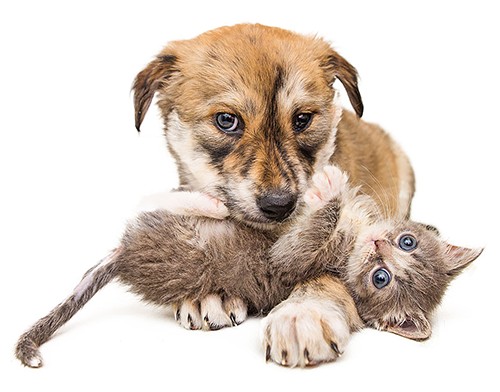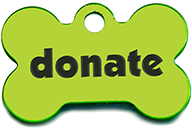While there are potential complications that could occur after a cat’s spay or neuter surgery, there are a limited number of things you can do to prevent them for a feral cat.
If you have the ability to safely monitor the feral cat after surgery, please follow these instructions to aid in the cat’s recovery.
If you can, restrict the Animal’s activity for the next seven – ten days to allow the tissue time to heal, & avoid causing the incision to open. Cats should be housed in a safe space for at least 24 hours after surgery as they are still experiencing the effects of the anesthesia and may be vulnerable. This can include inside a barn, garage, shed, large-sized pet crate, or in the live trap. Keep the incision site dry; do not bathe or apply topical ointment during the recovery period.
If you can, occasionally check the incision site for any signs of irritation or infection including redness, swelling or drainage. Discourage licking and/or chewing is possible.
It is not typically feasible to administer oral medication to a feral cat, so we are not able to prescribe post-operative pain medication for TNR cats. We do administer a pain-relief injection to each animal during their spay or neuter procedure, and this medication typically controls pain for 24 hours. Please do not administer pain medication that has not been prescribed by a veterinarian.
Appetite should return gradually within 24 hours of surgery. Offer a small amount of food the night after surgery, typically ⅓ the normal amount given. The goal is to encourage your pet to eat a small amount of food, slowly. Do not change the Animal’s diet at this time, & do not give them junk food, table scraps, milk, or any other people food during the recovery period. Feeding them their regular diet will help avoid gastro-intestinal upset.
Minimal redness & swelling of the surgery site should resolve within several days, but if they persist longer, please call our office at 517.263.3463. You should also contact us immediately if you notice any of the following: pale gums; depression; unsteady gait; loss of appetite or decreased water intake; vomiting; diarrhea; discharge or bleeding from the incision; difficulty urinating or defecating; labored breathing. Do not give human medication to the animal. It is dangerous & can be fatal.




